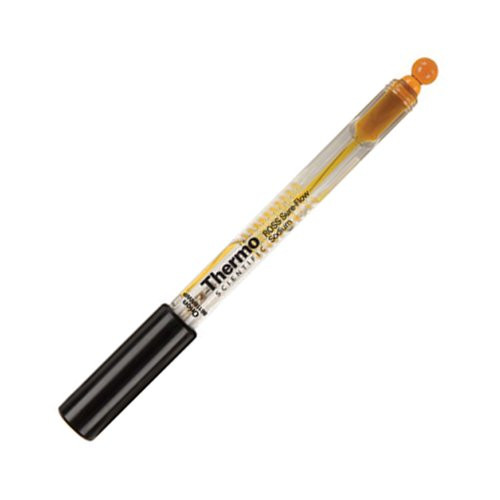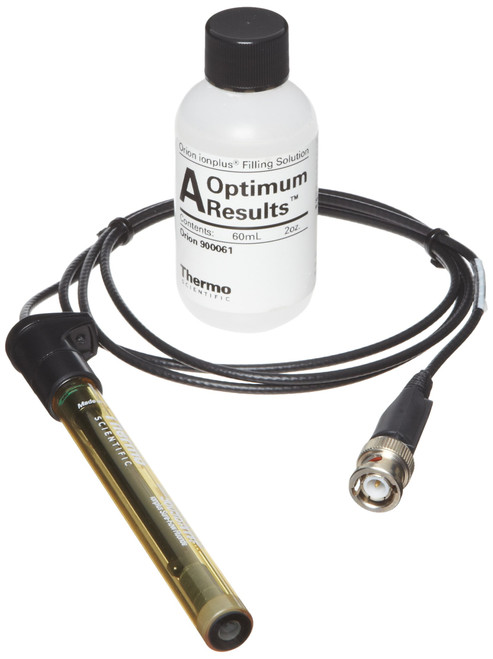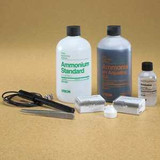Brand: Thermo Scientific Orion
Features:
- Nitrate ion selective electrode (ISE) with flushable junction measures nitrate (NO3-) concentration in water, fertilizers, soil, food, and other aqueous solutions
- Combination electrode contains both the measuring half-cell and the reference half-cell to minimize electrostatic interference and provide consistent readings
- Replaceable sensor module threads into the corrosion-resistant PVC body
- Measurement range is 14,000 to 0.1 ppm as N, and main interfering ions include SO4-2, F-, OAc-, PO4-3, HPO4-2, H2PO4-, Cl-, CO3-2, and HCO3-
- Electrode is 13mm in diameter and 110mm long, and has a 1m cable with a waterproof BNC connector for attaching to meters with a BNC connection
Thermo Scientific
Details:
The Thermo Scientific Orion 9707BNWP combination nitrate ion selective electrode (ISE) with flushable junction has a plastic membrane sensor for measuring the nitrate (NO3-) concentration in surface and drinking water, waste water, fertilizers, soil, plant tissue, food, and other aqueous solutions. The flushable junction expels contents by pressing on the cap, preventing clogs and contamination. This combination electrode contains both the measuring half-cell and the reference half-cell to minimize electrostatic interference and provide consistent readings. Its corrosion-resistant PVC body has a replaceable sensor module that is sealed for minimal maintenance. The sensor module contains the membrane sensor and screws into the body so it can be replaced when a fresh sensor is needed.
The ISE has a measurement range of 14,000 to 0.1 parts per million (ppm) (1.0 to 7E-6 M) as N, and the main interfering ions are SO4-2, F-, OAc-, PO4-3, HPO4-2, H2PO4-, Cl-, CO3-2, HCO3-, HS-, Np2-, Br-, CN-, Cl03-, I-, and ClO4-. The electrode operates in temperatures ranging from 0 to 40 degrees C (32 to 104 degrees F) and is recommended for use in solutions with pH ranging from 2.5 to 11. It is 13mm in diameter and 110mm long, and has a 1m cable with a waterproof Bayonet Neill-Concelman (BNC) connector for attaching to meters with a BNC connection. ISEs respond selectively to ions in the presence of other ions, and are commonly used for water testing and analyzing biological samples in hydroponics, aquaculture, and agriculture, among other applications.
An electrode, also called a sensor or probe, is an instrument used with a meter to test and measure parameters of a substance. All electrodes are probes or sensors, but not all probes are electrodes or sensors. Probes, such as temperature probes, are used to penetrate a material for measurement. Common electrode types are pH, total dissolved solid (TDS), oxidation reduction potential (ORP), and ion








